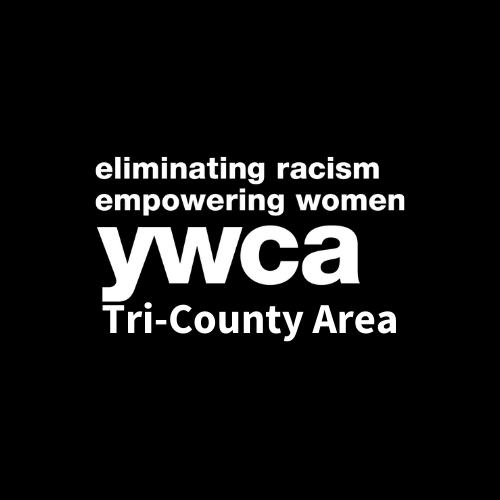The novel coronavirus outbreak has impacted us all, but when parsing out the unique experiences of the virus felt across varying population demographics, COVID-19 is anything but the great equalizer. In her recent post, my colleague Sophia broke down the effects of the crisis on communities of color, but the focus of this piece is on the impacts felt by women. Women are disproportionately on the front lines of the virus as essential workers, comprising nearly 80% of U.S. health care professionals, but those sheltering in place at home face the risks of another pandemic: the rise in domestic violence due to social distancing guidelines.
Referred to by many as the “pandemic within the pandemic” is the rise in domestic violence incidents during the coronavirus crisis. It’s the combination of many factors that has made an already untenable situation for victims worse, as we saw first in the reported increase in gender-based violence incidents in China in the first few months of the novel coronavirus outbreak. Social distancing guidelines confining domestic partners together in their homes give abusers more leverage to control their victims. Mix in the isolation from friends, family, and workplaces; high tensions and uncertainty; and the joblessness now experienced by over 38 million newly unemployed Americans; and the result is an especially dangerous time for those experiencing domestic abuse.
In just the first week of April, YWCA shelters saw an increase of 84% in hotline call volume and a 70% increase in demand for emergency housing. In addition to the rise in domestic violence-related incidents, social distancing measures have also complicated how domestic violence programs operate. Advocates operating dorm-style facilities, for example, are now challenged to rethink how to house residents more safely. From paying for hotel rooms to renting RVs, YWCAs across the country are adapting operations to space current residents apart and temporarily quarantine incoming residents.
However, the rise in reported incidents and the adaptations our shelters have made to keep staff and residents safe have also led to some incredible acts of kindness. From packaged meals to hand-sewn masks, we’re thankful for the people and businesses stepping up to provide essential items for their neighbors during this critical time. Though the situation for many is dire, gestures like the ones we’ve witnessed go a long way.
We all share a role in keeping each other safe. One way to help support those experiencing domestic violence is to donate time, money, or essential in-kind supplies to shelters that could use it. You can also help by checking in on your friends, family, and neighbors, and by reaching out to elected officials to urge them to include provisions in economic relief packages that would benefit charitable organizations on the front lines of the coronavirus crisis. Of course, during this unprecedented time, you can also help your neighbors by staying home when it’s safe to do so, wearing masks when out in public, and following CDC guidelines to play your part in stopping the spread of COVID-19.
 Additionally, we should all learn to recognize the signs that someone may be in an unsafe situation. While physical signs such as bruising can be a clearer indicator, if you’re noticing that a loved one has grown more depressed or anxious, it’s possible that it isn’t just a side effect of social distancing. There are also subtle ways that those experiencing domestic violence may be reaching out to you for help, one example being this simple two-step hand signal developed by Women’s Funding Network. The first step is holding up your hand with your palm facing the camera and tucking in your thumb; the second is trapping your thumb with the other four fingers. This concept is to help those experiencing domestic violence signal for help on video calls in a way that doesn’t leave a digital trace like a text message or email would. If you see someone use this signal, reach out to them discreetly to check in.
Additionally, we should all learn to recognize the signs that someone may be in an unsafe situation. While physical signs such as bruising can be a clearer indicator, if you’re noticing that a loved one has grown more depressed or anxious, it’s possible that it isn’t just a side effect of social distancing. There are also subtle ways that those experiencing domestic violence may be reaching out to you for help, one example being this simple two-step hand signal developed by Women’s Funding Network. The first step is holding up your hand with your palm facing the camera and tucking in your thumb; the second is trapping your thumb with the other four fingers. This concept is to help those experiencing domestic violence signal for help on video calls in a way that doesn’t leave a digital trace like a text message or email would. If you see someone use this signal, reach out to them discreetly to check in.
Moreover, if you yourself are unsafe at home, don’t wait until the threat of COVID-19 is over to seek help. YWCA is still here during COVID-19, empowering survivors every day by providing critical support, including emergency housing, meals, and counseling. We’re following CDC guidelines in every shelter to maintain the health and safety of everyone who comes through our doors, because we’re committed to keeping survivors and their families safe from both pandemics. Find a YWCA in your area to get help.
If you or someone you know is experiencing domestic violence, you can also reach out to the confidential National Domestic Violence Hotline. (Call 1-800-799-7233 or TTY 1-800-787-3224 or chat online at thehotline.org.)
By Debbie Baldwin, Digital Media Specialist


